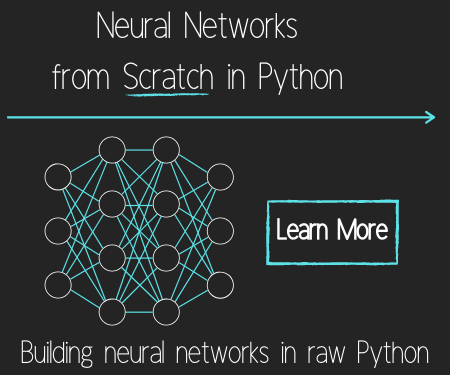Finding Patterns
Time to create our pattern-finding function.
import matplotlib
import matplotlib.pyplot as plt
import matplotlib.ticker as mticker
import matplotlib.dates as mdates
import numpy as np
from numpy import loadtxt
import time
date,bid,ask = np.loadtxt('GBPUSD1d.txt', unpack=True,
delimiter=',',
converters={0:mdates.strpdate2num('%Y%m%d%H%M%S')})
def percentChange(startPoint,currentPoint):
return ((currentPoint-startPoint)/startPoint)*100.00
def patternFinder():
'''
The goal of patternFinder is to begin collection of %change patterns
in the tick data. From there, we also collect the short-term outcome
of this pattern. Later on, the length of the pattern, how far out we
look to compare to, and the length of the compared range be changed,
and even THAT can be machine learned to find the best of all 3 by
comparing success rates.
'''
#Simple Average
avgLine = ((bid+ask)/2)
#This finds the length of the total array for us
x = len(avgLine)-30
#This will be our starting point, allowing us to compare to the
#past 10 % changes.
y = 11
# where we are in a trade. #
# can be none, buy,
currentStance = 'none'
while y < x:
p1 = percentChange(avgLine[y-10], avgLine[y-9])
p2 = percentChange(avgLine[y-10], avgLine[y-8])
p3 = percentChange(avgLine[y-10], avgLine[y-7])
p4 = percentChange(avgLine[y-10], avgLine[y-6])
p5 = percentChange(avgLine[y-10], avgLine[y-5])
p6 = percentChange(avgLine[y-10], avgLine[y-4])
p7 = percentChange(avgLine[y-10], avgLine[y-3])
p8 = percentChange(avgLine[y-10], avgLine[y-2])
p9 = percentChange(avgLine[y-10], avgLine[y-1])
p10= percentChange(avgLine[y-10], avgLine[y])
outcomeRange = avgLine[y+20:y+30]
currentPoint = avgLine[y]
#function to account for the average of the items in the array
print reduce(lambda x, y: x + y, outcomeRange) / len(outcomeRange)
print currentPoint
print '_______'
print p1, p2, p3, p4, p5, p6, p7, p8, p9, p10
time.sleep(55)
y+=1
def graphRawFX():
fig=plt.figure(figsize=(10,7))
ax1 = plt.subplot2grid((40,40), (0,0), rowspan=40, colspan=40)
ax1.plot(date,bid)
ax1.plot(date,ask)
ax1.plot(date,percentChange(ask[0],ask),'r')
ax1.xaxis.set_major_formatter(mdates.DateFormatter('%Y-%m-%d %H:%M:%S'))
plt.grid(True)
for label in ax1.xaxis.get_ticklabels():
label.set_rotation(45)
plt.gca().get_yaxis().get_major_formatter().set_useOffset(False)
ax1_2 = ax1.twinx()
ax1_2.fill_between(date, 0, (ask-bid), facecolor='g',alpha=.3)
plt.subplots_adjust(bottom=.23)
plt.show()
-
Introduction
-
Quick Look at our Data
-
Basics
-
Percent Change
-
Finding Patterns
-
Storing Patterns
-
Current Pattern
-
Predicting outcomes
-
More predicting
-
Increasing pattern complexity
-
More on Patterns
-
Displaying all patterns
-
Variables in patterns
-
Past outcomes as possible predictions
-
Predicting from patterns
-
Average outcomes as predictions
